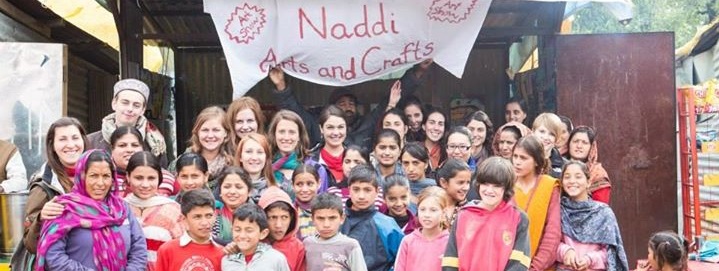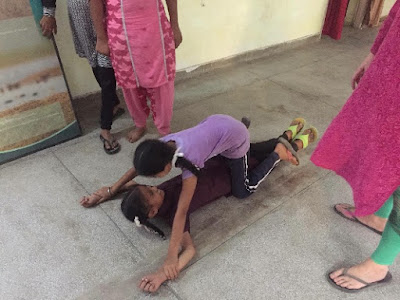On the move
Making a portable solar light - On the move - Chemical to Renewable Engineering
After studying Chemical Engineering in UK, I got interested in renewable energies. I came across the internship opportunities offered abroad in India by EduCARE India NGO in micro-scale renewable / alternative energy projects in EduCARE India. I spend the month of July in induction training and settling down. Prof Kalia, a resource person / mentor with EduCARE India listened to my interest and ideas. He gave me some solar panels and diodes asking me to learn and build a small and economical solar light solar panel that can serve the rural poor. I needed more materials. The month of August had brought the challenge
of sourcing and buying the materials required to make the solar light
prototypes. Considering that I am used to online sources being quite reliable
and usually the cheapest option, trying to source materials in India brought
about a whole different experience for me. Here it is the opposite, where
generally a material sourced online tends to cost more than buying in person. I
have had to practice being very patient, as online or telephone communication
was also proving to be quite a challenge. Despite numerous emails and phone
calls, the correspondence was not progressing.
Through consulting another external
mentor, Prof. Abhijeet directed me to Asia’s biggest electronics market in Delhi, where I could find everything I
needed. Being new to electronics myself, this would also prove to be an
educational trip as having a market setting provides a very close up look to
numerous equipment available. Despite having to journey to Delhi by my ownself, this trip was
incredibly useful, learning to work and lead my work independently, as asked of interns at EduCARE India. Winding through the narrow alleyways filled with small
stalls, selling every possible electronics component imaginable was
overwhelmingly interesting. Had I not planned to journey back to Punjab that
night I could have spent days exploring this market with a lot of fascination.
The navigation through this somehow ordered chaos was an experience all on its
own. The stream of people going through spaces barely wide enough for 2 people
side by side, trying to avoid being hit by boxes being carried over your head
by porters forcing their way through the crowd, trying and failing to keep
track of what direction I was going in, making the mistake of thinking I could
return to a stall if I didn’t find a cheaper price elsewhere and not being able
to find it again. It was fascinating and exhausting at the same time. After
spending more than 6 hours walking through the market and managing to buy
everything on my list, I was definitely ready to sit down for a relaxing meal
before my journey back to Punjab.
As cost is a big consideration for
the product development, this market setting where one can haggle proved to be
very useful. It is also important to try and make the product as
environmentally friendly as possible. Taking inspiration from the “Litre of
light” project in the Phillipines, making use of plastic bottles as the
container for the light can be very beneficial to reuse / recycle some of the plastic waste in
the local community. In order to make the product more appealing, an idea is to
engage the incredible creativity of the local children to design an artistic
exterior for the bottle. The biggest challenge in designing the prototype is
how to keep it as simple as possible and how to achieve the highest brightness
using the lowest amount of power as possible.
On the less
technical side - after two and a half months of working at EduCARE I decided it
was time to take a break. Therefore, I had decided to time my holiday to visit
my family in Gujarat with the religious festival called Navratri which is
dedicated to the Godess Durga. The festival lasts for 9 days and to celebrate
everybody gets together every night for a few hours to dance “garba” which is a
incredibly energetic and fun group folk dance. It is all-inclusive as you see a
mixture of all ages and different backgrounds dancing together. Having grown up
celebrating this festival in London, being able to experience it in Gujarat is
something I have always wished for and is now something that I will never be able
to forget.
My solar light prototype @ $3 / ₹200
Khushbu Ravani (UK)
Project Manager, Hand-held Portable Solar Light
Asst Program Coordinator, Renewable Energy / RE Engineer
ViKAAS Centre, Harike
EduCARE India
EduCARE India














